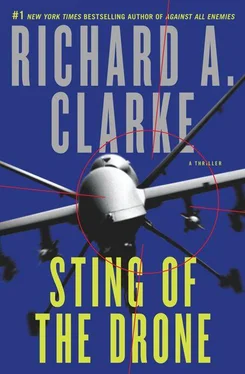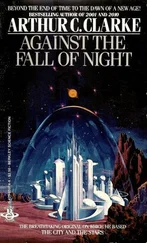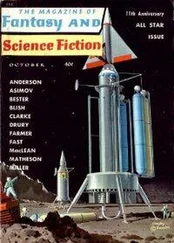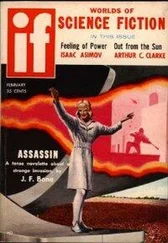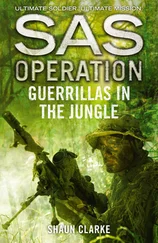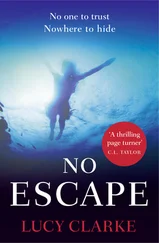“That’s what I was just thinking,” Ray replied. “Why me?”
“Who else? You saw the way they are all playing their games down there. I need somebody I can trust, somebody with no agency agenda,” Burrell said. “You realize, of course, that the Mexican thing was a ruse. They nominate a few every month for me to reject. Makes the other agencies think I am being tough on the CIA.”
Ray laughed. “I thought that might be happening. And the Austrian thing. Think the President is going to go for that?”
“We’re not going to ask him. Too risky. We need to insulate him. Deniability. Protect the Principal,” Burrell explained.
“So you tell them no?” Ray asked.
“Quite the contrary. You are going to tell them to go ahead. And you are going to imply that it has gone up to The Man, but you are never actually going to say that. It will get you off on the right foot with CIA, giving them the go ahead.”
“Do I also have to tell State and Justice?” Ray asked.
“No, they’ll read about it in the papers when it happens,” Burrell replied.
“Okay then,” Ray said. “And you’re not overly concerned about the operational risk?”
“No, we’ve done this kind of thing before. A lot, actually. They never get caught. It’s the one thing the CIA seems to be able to do well, fly drones,” Burrell said. “And actually, it’s not even CIA that flies the Goddamn things, it’s Air Force officers seconded to CIA. We’ve got this joint CIA-DOD coordination center that flies the sensitive missions and coordinates all the others. In fact, the new director of it is coming in to see me. You ought to join me in the meeting. Let me see here,” he said looking at his schedule. “Ms. Sandra Vittonelli.”
“Sandy?” Ray said, spilling some of his coffee.
“You know her? Is she good?” Burrell asked.
“She was when I knew her,” Ray smiled. “She is one tough cookie.”
“Good, that’s what we need in that job.” Burrell got up and walked back to his desk, signaling the meeting was over. As Ray was getting near the door Burrell added, “Oh, and Raymond, now that you are a member of the Kill Committee…”
“Yes sir?”
Burrell looked across the wide office at him. “Don’t call it the Kill Committee. And we don’t call them drones.”
“Why not?” Bowman asked.
“Because that implies that they are autonomous and they’re not.”
“Really, what do you call drones then?”
“Now, we say RPAs,” the National Security Advisor explained.
“What’s that stand for?”
“Remotely Piloted Aircraft. Reminds people that there is a human in the loop, if not actually inside the aircraft.”
“I thought they were UAVs, Unmanned Aerial Vehicles,” Bowman said.
“They were, but now they’re RPAs. The human involvement wasn’t clear with the use of UAV. See, actually they are not unmanned. It’s just that the man, or woman, is on the ground.”
“Okay, but I hear that the pilots call them Fuckers.”
“I’ve never heard that. Why would they say that?” Burrell asked.
“FKRs, Flying Killer Robots. The Predators are the Little Fuckers and the Global Reach are the Big Fuckers.”
“No, don’t call them Fuckers. I don’t want that to spread. Very bad messaging.”
Bowman nodded and left the room.
TUESDAY, JULY 2
THE RINGSTRASSE
VIENNA, AUSTRIA
It was a summer rain, from clouds that had moved quickly across the plain and then hit the foothills, dropping a cooling spray on the stones and asphalt of the old city on the Donau.
The black BMW had been maneuvering through a series of narrow side streets, known well to the driver who also served as a concierge at the palace hotel. He edged the car onto the slickened Ringstrasse, across the wet trolley tracks, and then turned in to the tree-lined road. The short street was blocked at the end by the stone ruins of the city’s old wall. Rising out of the remnants of that battlement, a modern glass facade reached up for three floors. Above and behind the glass and stones were the whitewashed walls and windows of the eighteenth-century Palais, now one of Vienna’s most exclusive hotels.
The passenger emerged from the back seat of the car under an umbrella held by one of the hotel’s doormen. Another doorman took his bags. The guest appeared to be perhaps a wealthy Italian, Greek, or Spaniard, in a fine dark suit. The gray speckles in his hair suggested he was in his late forties or early fifties. He looked up at the grand façade of the yellow and white Palais, lit by a string of flood lamps on top of the high, gray rock wall in front of it. Between him and the old town wall was the lobby of the hotel, a large expanse enclosed in glass. Inside, he could see a bar area and a grand piano and lights shining up at the rocks and stones that had once defended this old city from the men on horses who came from the East, from lands near where his people now lived.
Once inside, a doorman led him to a modern leather seat in front of a low registration desk.
“Coffee, sir?” the Registration clerk asked.
“ Ja, inder Tat. Einen grossen schwarzen, bitte, ” the man replied with a Berlin accent, Hochdeutsch, not the lilting Viennese version. He passed the clerk a Turkish passport. “Mustafa Gulkkon.” He checked his watch, which was made from a reddish gold. Then he switched to English. “My office made a reservation for two nights, I believe.” His English sounded British accented, perhaps slightly Indian.
The thick Viennese coffee appeared quickly from the Lobby Bar. “I have it here, mein Herr, ” said the clerk. “A beautiful suite on the fifth floor. You will be staying with us for two nights, yes? And, let me see here, I also have a message waiting for you from your colleagues; they are up in the Cigar Bar. If you like, we can have your bags taken up to the suite and I can have Wilhelm show you to the Cigar Bar.”
Led by the young bell clerk, Herr Gulkkon walked through a glass door in part of the stone ruins and up a glass, spiral stair. The indirect lighting made the ruins’ stone walls seem warm and comforting. The Cigar Bar, a small room on the second floor, had a large window that looked across a narrow corridor to the outer glass wall. The bar’s door was covered by a black shade on the inside. A small sign hung on a chain outside, GESCHLOSSEN.
Wilhelm was not deterred by the “Closed” sign. “Your colleagues have reserved the Cigar Bar for just themselves this evening, yes?” he said in American-accented English. As he pushed open the door with his right hand, Herr Gulkkon slipped a five-euro note into his left.
“ Danke, mein Herr . There is a bar set up, but if there is anything else you would like, please just ring the Lobby Bar.”
Now there were three men in the dark, wood-paneled room. Like Gulkkon, they were clean-shaven, in expensive, dark suits, probably from Saville Row. They sat in large, red leather chairs around a low table. Only one man was smoking a cigar, but that was enough to fill the small room with the rich fragrance from Cuba. Behind glass doors on the walls, boxes of many varieties of Cuba’s crop were on offer. On the low table in the middle of the armchairs were half-empty glasses and opened bottles from three of the Permanent Member states of the UN Security Council, Cristal champagne from France, Johnnie Walker Blue Label scotch whisky, and Kauffman vodka from Russia. All that was missing, Gulkkon thought, was baijiu and bourbon. This was his version of Islam, one modified by years living in Canada and Europe.
The three men, who had been seated, stood and shook hands warmly with Gulkkon, who appeared to be somewhat older than the others. “Perhaps we could raise the curtains,” he suggested. “Meeting with them down looks suspicious and we are, after all, just businessmen with nothing to hide.”
Читать дальше
